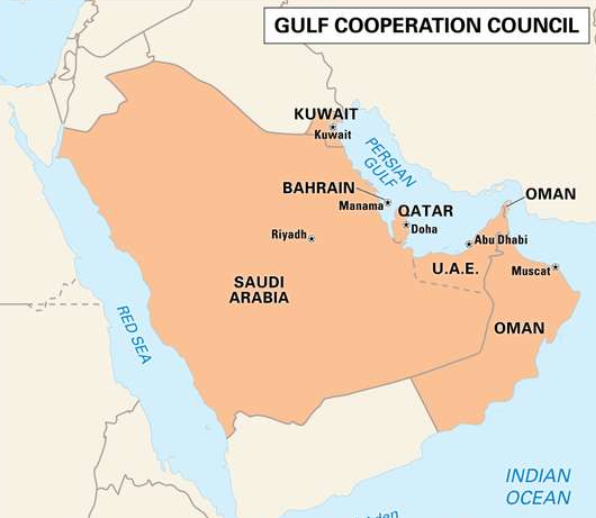The Gulf Cooperation Council (GCC) was established by an agreement concluded in 1981 among Bahrain, Kuwait, Oman, Qatar, Saudi Arabia and UAE because of their special relations, geographic proximity, similar political systems based on Islamic beliefs, joint destiny and common objectives. The structure of the GCC consists of the Supreme Council which is the highest authority, the Ministerial Council and the Secretariat General. The Secretariat is located in Riyadh, Saudi Arabia. According to its charter, it is a political, economic, social, and regional organization.
On 14th November 2021, the 42nd meeting of the six-member Gulf Cooperation Council (GCC) summit was held. The summit, which took place on Tuesday in the Saudi Arabian capital Riyadh, is the first since Saudi Arabia, Bahrain, Egypt, and the United Arab Emirates agreed to end their dispute with Qatar over a range of issues including its foreign policy, which had led them to sever diplomatic relations with Doha in June 2017.
Saudi Arabia’s Crown Prince Mohammed bin Salman after the 42nd summit said the alliance would continue to play a role in strengthening security and stability in the Middle East region. He further stated that “We are looking forward today to building a prosperous economic bloc, and this requires creating a stimulating environment that depends on diversifying sources of income.”
The framework and work will meet the future challenges and highlights the importance of strengthening opportunities for women and young people and digital transformation in the GCC countries. The GCC has managed to unify 68 Gulf laws and regulations, and 116 indicative Gulf laws and regulations. It has also established 42 joint Gulf institutions in technology and economic cooperation, and 26 Gulf organizations operating under the umbrella of the GCC. It has also agreed on 17 joint development agreements and strategies. In the past 40 years, the GCC has held 41 annual summits, four exceptional summits, 17 consultative summits and five joint summits. The GCC supported several activities in the cultural field that include visual arts, narration, poetry, cinema, theatre, music, heritage and creativity. They have focused on the need to enhance women’s participation, support their role, and enable them to participate effectively and influence society’s development, as well as be part of leadership positions and the decision-making process, emphasizing Islamic and Arab values and principles. Military cooperation between the Gulf countries has been characterized by intense work in building and developing defence and security forces. Cooperation has developed qualitatively and quantitatively since the formation of the council.









